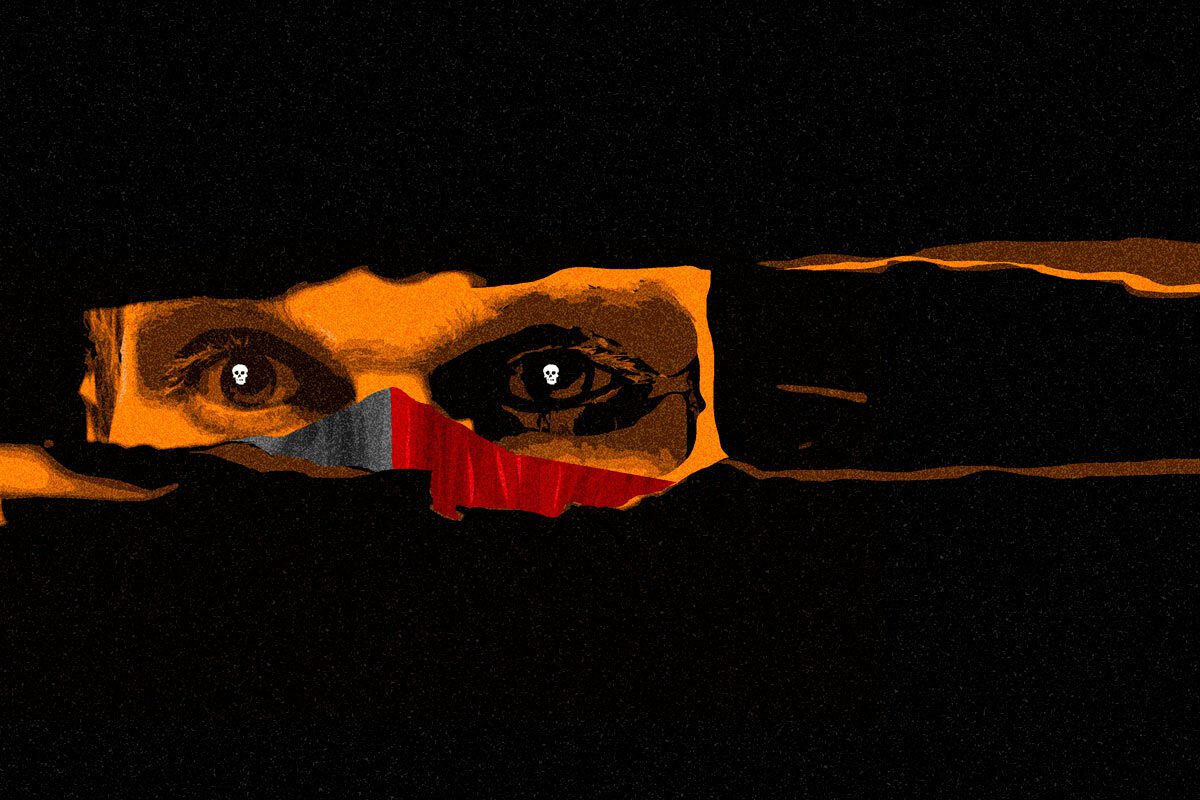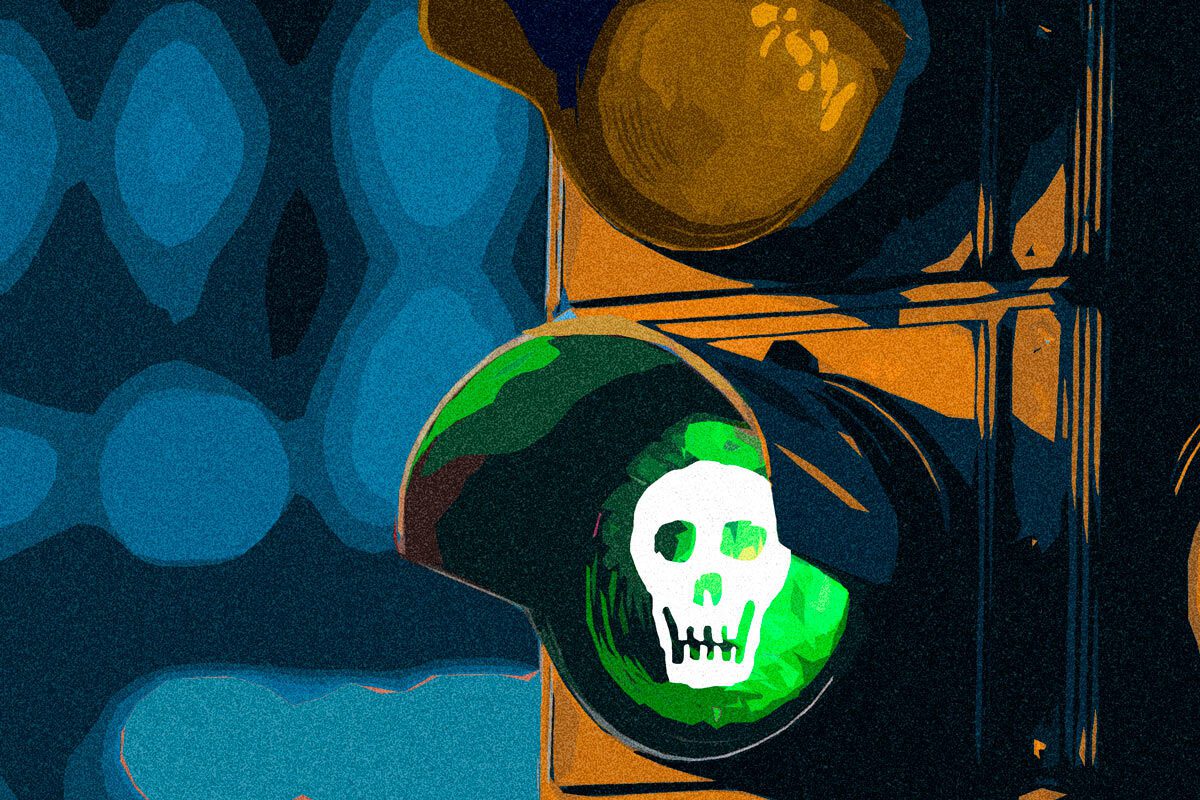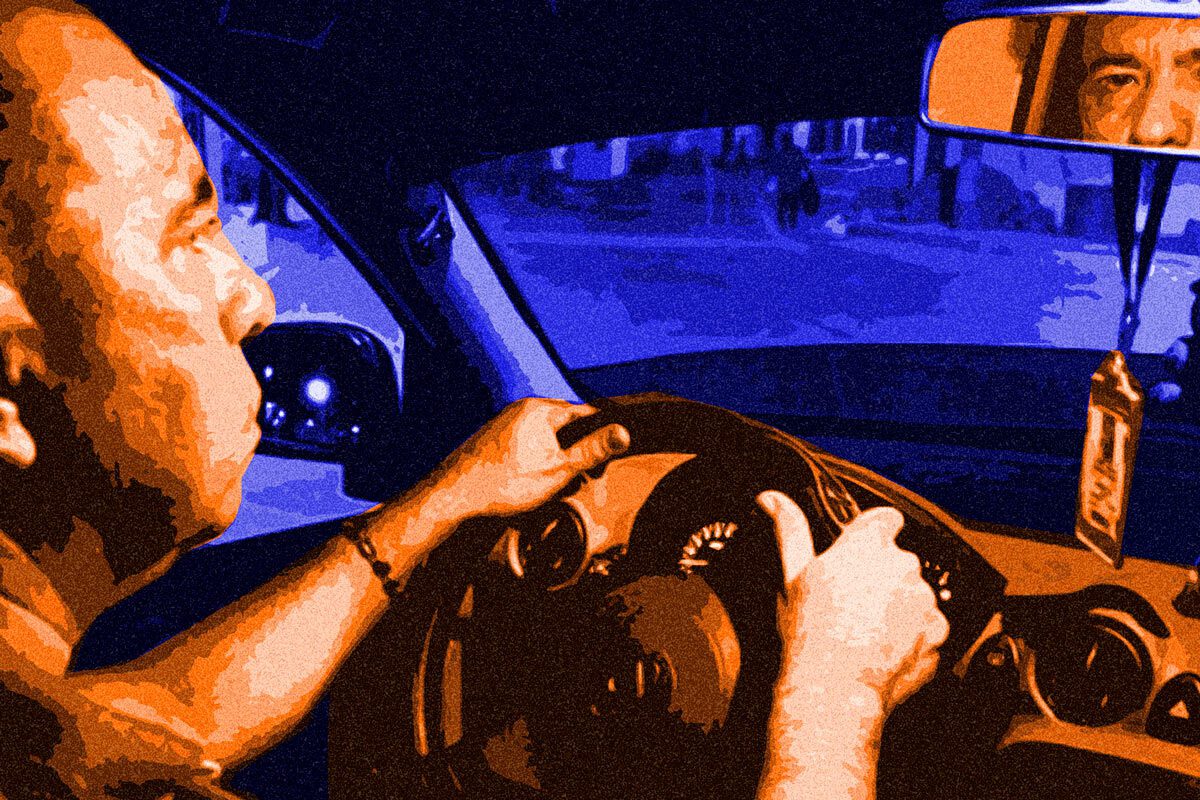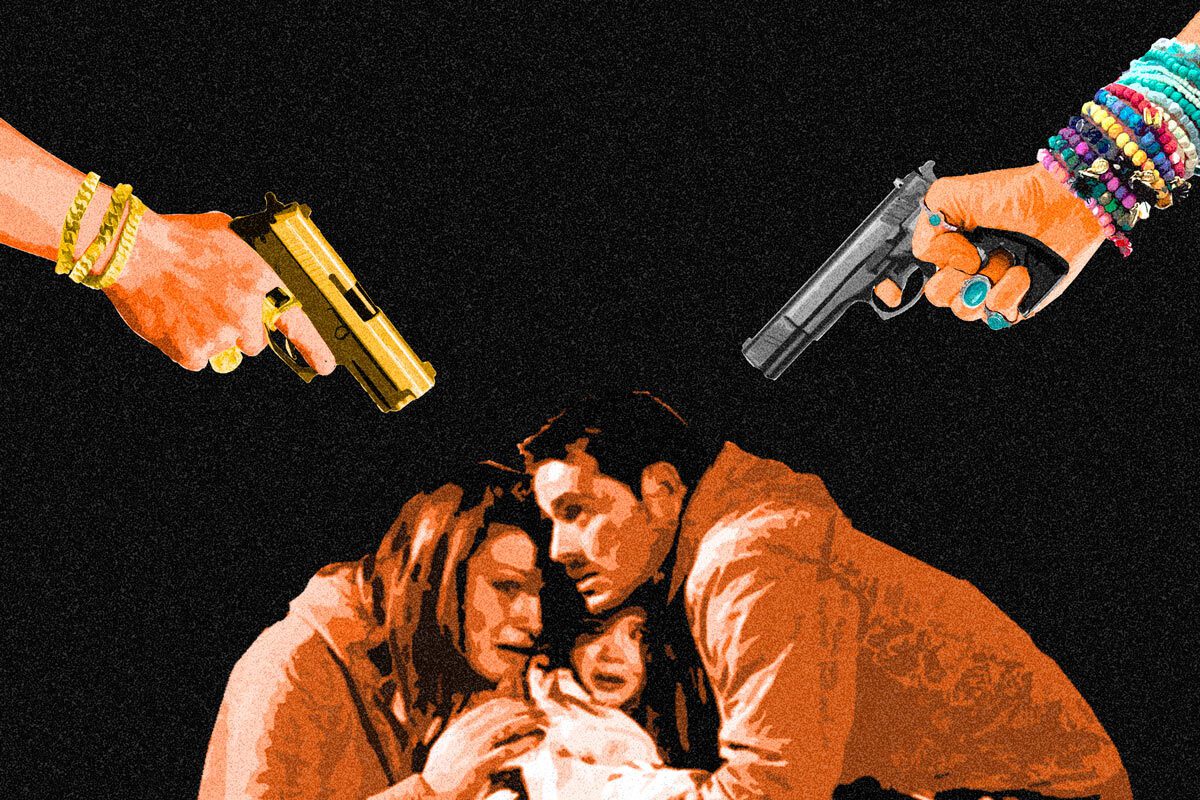Before the traffic light turned green, Kathye sensed that she was about to experience the greatest danger of her life. It was a strange feeling, one that had been with her from the moment her family told her and her two children that they would be crossing to the United States through Ciudad Juarez. Hearing that didn’t sit well with her. On Facebook, everywhere, she had read that this Mexican city is one of the most violent in the entire territory. It is even one of the ten most violent cities in the world. In Juarez there are 80 homicides per month, according to data from the Citizen Council for Public Safety and Criminal Justice.
That is why she spent the whole trip feeling uneasy. Before arriving at the traffic light that would change her life, the bus driver on which she and twenty other migrants -most of them Venezuelan- were traveling told them that he would change buses due to a “mechanical malfunction”. “I felt that the first bus we boarded was fine. I didn’t understand why they told us it was damaged and made us change transportation.”
Everyone moved to the new bus, but that did not reassure Kathye, who was carrying her two children, a four-year-old boy and a twelve-month-old girl. A Venezuelan woman, who was also trying to cross to the United States, confirmed to her on the new bus that she was not the only one who was afraid of what was happening. “Mana, this is weird,” she told her quietly, also fearful.
“I prayed to all the saints in heaven. I prayed to God. I remember that my sister sent me a message before what happened,” she recounted.
-How are you doing? -His sister texted her.
-Let me get to Juarez station,” replied Kathye, who was 28 years old at the time and fled at the end of August 2022 from a Nicaragua governed by the regime of Daniel Ortega and Rosario Murillo.
Fleeing to fall into the narco grip

The massive flight of Nicaraguans through one of the most dangerous routes in the continent highlights the suffocating situation in the country. Apart from the economic situation, repression has reached its peak since 2021: university closures and confiscations, religious persecution, imprisonment, civil death; are some of the repressive tactics used by the Sandinista dictatorship to stay in power.
“People cannot express their political opinions and this has been exacerbated over time with restrictions on religious beliefs and faith. People feel like they can’t do anything, that they have no freedom in Nicaragua,” explains Elvira Cuadra, sociologist, director of the Center for Transdisciplinary Studies of Central America (Cetcam) and expert on security issues.
This is why Kathye left Nicaragua on August 22, 2022 along with tons of Nicaraguans who have decided to flee north to escape Ortega and Murillo’s debacle of a country. She and her husband, Shelby, 38, are originally from Bilwi, a municipality located in the Caribbean of Nicaragua. But both have lived in the capital since they were children.
Shelby fled on February 11, 2022, fed up with members of the Citizen’s Power Council (CPC), a Cuban Castro-style territorial control body, branding him as an opponent and not allowing him to live in peace. He, like many, had participated in the 2018 protests, publicly expressing his discontent towards the management of the presidential couple. Over time, as repression worsened, party members would not take their eyes off him. They were isolated from the community for thinking differently. So he decided to leave the country and seek a new life in the United States, and then send for his wife and children. He finally did. In August of that same year he raised some money and told his partner to leave as well. In Nicaragua, there was no life.
Surveillance and political espionage are some of the main causes that torment Nicaraguans and force them to leave the country, along with poor economic opportunities. “It is enough that one has some kind of animosity or suspicion to be a target,” says Cuadra via phone call from San Jose, Costa Rica. She has experienced exile firsthand as one of the academic voices who has studied and analyzed the phenomenon of Sandinista repression in Nicaraguan society.
Kathye left on August 22, 2022. Everything was going well, until she set foot in Ciudad Juarez. She left Managua with her older brother and her two children. All together. They arrived in Chiapas in relative calm. They moved to San Pedro Tapanatepec, a little further north, where they were given a migratory form to continue throughout Mexico. They arrived in Mexico City a few days later, and then went to the most dangerous routes, to the feared Aztec north where organized crime is everywhere.
“Whoever moves, I’ll kill them.”

When she narrates it, it seems like everything happened slowly. That the traffic light spent a long time on green, that the bus took ages to start; it seems as if Kathye would have had time to get off and run away as soon as things got strange. But no, it was all too fast, like an action sequence.
Suddenly, a black van pulled up next to the bus, some men got out and one of them, wearing a hood, banged on the door. Bang, bang, bang, “Open the door,” he shouted to the driver. In that instant Kathye’s life changed course and moved into a new, unsuspected and unknown reality. Everything she knew and expected fell apart.
The driver opened the door and the hooded man got in with a long gun. He was dressed all in black. As he entered he said what is usually said in all kidnappings: “Anyone who moves, I’ll kill them.” No one moved from their seat. Kathye thought it was going to be a robbery, that they would take whatever they wanted, and that’s as far as it would go. One of the many that migrants suffer on the terrifying journey through Mexico. They are so common that most of them narrate them casually, as if it were part of the journey. It would all remain just another anecdote, to be told at gatherings with friends and family. But this time it wasn’t just a robbery. It was a kidnapping.
Everyone got out and they were immediately divided into two vans with tinted windows. Kathye’s family was loaded into the same vehicle. Their cell phones were taken away and turned off. At that moment Kathye realized that it was not a robbery, that the story she would tell of her passage through Mexico – if she made it out of it – would not be told casually. It would take Kathye months, and a lot of therapy, to relate this episode.
-Where are you from? -asked one of the kidnappers.
-From Nicaragua,” answered Kathye’s brother.
-Aren’t you Cubans?
-No, we are Nicaraguans.
While her brother answered all the questions and tried to remain calm, she cried. “Stop fucking around,” the men kept telling her.
“I felt nervous, I was trembling with fear. We arrived at a dirt road, dusty, like in the desert. They took us into a house. The walls were made of mud. And they began to take our things, our bags. They took all the money I was carrying. They told me to take off my clothes to see if I wasn’t carrying anything. They started touching me. They didn’t search my daughter,” the woman said.
They were all locked up in a house with chains on the doors. No phones, none of their personal belongings. They spent a day like this, then two, until after several hours of her daughter crying, they allowed her to get a baby bottle with milk from her belongings.
That day, the men unlocked the chains and told them they could go out to bathe. There were several of them, hooded, in black. There was no doubt. They were in the hands of a cartel. They were in the hands of an organized crime group that, in this area of Mexico, operates like this. According to data from the report on the Situation of Trafficking and Kidnapping of Migrants in Mexico by the National Human Rights Commission (CNDH), in the last decade more than 70,000 migrants were victims of smuggling and kidnapping in the country. Most of the cases tend to go unpunished, as migrants are absolutely afraid to file a complaint, and trust in Mexican authorities is minimal.
“If you looked up from the house there were only mountains, like cliffs and nothing else. On those hills you could also see men. At that moment I told my brother ‘we’re not going to get out of this,'” Kathye says. “I was just crying, and he told me ‘control yourself, control yourself, don’t let your nerves get the better of you. Remember that we are with the children’. I thought they were going to kill us,” she recalls.
One of the reasons Elvira Cuadra identifies as to why migrants often take great risks lies in one word: desperation. Desperation to leave a country where life opportunities are vanishing. “In other words, they are weighing between a desperate situation and a risk that is probable, but of which there is no certainty, in the sense that it may not happen to them,” Cuadra explains.
Economist and political analyst Eliseo Núñez adds that although most of the migrants in this latest wave that began in 2021 left the country for economic reasons, there is a political background.
“If you live in a country where you need to be politically involved in order to get opportunities and where corruption is of such magnitude that only those who are around the regime can obtain some kind of benefits, or a country where if you are going to form a company you also have to pay bribes to the State, if you are going to do any productive activity or go to look for work you need to go to the Police for a record, and if it does not come out clean you have to go to the political commissioner to ask permission…. All these are problems that fall into the political sphere and in the end force you to leave the country”, explains Núñez.
The call

Shelby was well established in Seattle, USA. For the past few months he had been doing well. He was doing whatever work came his way: construction, freight, whatever. His plan was to save all the money to send for his wife and two children. On August 22 he learned that they left and arrived in Mexico, but when they were on their way to Ciudad Juarez he heard no more. A phone call confirmed his worst fears.
“They told me they had them and that I had to pay $20,000 for all of them, otherwise they were going to kill them,” says Shelby, on the verge of tears. Remembering all that shakes him up inside. On the phone, his first impulse was to ask where he would get that amount of money from. “We have to see you’re interested, if you pay some, we’ll reduce the amount,” the criminal told him.
Shelby managed to get and deposit $10,000 within a week. The promise was that if he paid half, the cartel would cross them all and leave them in San Antonio, Texas. They agreed on a day and date for the delivery. Shelby immediately took a flight.
Desperate, Shelby moved and looked everywhere for help. Through Mexican organizations, he circulated his family’s picture and information, while continuing to pay and keep his hopes up that the kidnappers would be truthful.
But in the kidnap house, Kathye’s hopes of getting out were slim.
When getting sick is “a miracle”
After six days of being kidnapped, and several promises that they would be released soon, that they would be freed to fulfill “their dream”, that is to say, after six days of false promises, something unexpected happened. Kathye’s 4-year-old son got a high fever that made him delirious. “I can’t tell you how high it was, because we didn’t have anything and I didn’t measure it, but I have no doubt it was over 40 (Celsius).”
One of the men told one of the chiefs that one of the children had a fever. “They are no good to us like this,” he told him. The kidnappers agreed to pass wet cloths to Kathye to put on both of them, because the girl was also beginning to have similar symptoms.
At 9:50 p.m. they decided to get them out and take them to a doctor in the city, because the discomfort was worsening as time went by. They put them all in a vehicle and took them to a health center.
“At that point, a doctor saw the children. He asked us questions and we didn’t say anything. We were afraid. The appointment ended and the children were found to have a lung infection caused by allergies. We didn’t want to leave, but outside was one of the men waiting to take us back. At that moment, the security guard of the clinic saw us and asked us what was wrong with us. We did not want to answer but my brother simply told him that we could not talk, that he might also be in danger. I think he knew the situation we were in,” says Kathye.
The guard began to make a plan. He told them not to leave the clinic, that he was going to say that the doctor had ordered them to stay in the clinic all night because the children were very sick. And that at six o’clock in the morning they should be ready to run away.
Kathye cannot describe what she felt. She feared for her life and that of her children and her brother. She knew that these people were not to be messed with and that what they were about to do could endanger their lives. At six o’clock, the guard opened the back door of the clinic, where the staff and deliveries usually enter. A doctor got out of a private cab, and immediately, with no time to do more, they got into it and asked the driver to take them to an office of the National Migration Institute (INM).
“The man in the cab just looked at us in the rearview mirror and crossed himself,” says Kathye. In Ciudad Juarez, everyone understands signs. There is no need to explain anything.
The escape

They arrived at Migration and asked for help. They explained that they were kidnapped, that they had just fled from their captors. They were taken care of and promised protection. Kathye was relieved and borrowed a phone to call her sister-in-law, Shelby’s sister. It was the number she had in the back of her mind.
Within minutes, she spoke to her partner. All she asked him to do was to get her out of there. Immediately. “I told him I didn’t want to die.”
Shelby had arrived earlier in San Antonio, where he was supposed to be handed his family. But when he tried to contact the kidnapper, he was blocked. He became desperate again. On his way through Mexico he met Cecilia Zeledón, a Nicaraguan who has lived in Mexico for 43 years and, from Puebla, coordinates all kinds of help for migrants. Cecilia is moved to tears by the stories of Nicaraguans fleeing a destroyed country, similar to the one she fled after the triumph of the Revolution in 1979. Her father was a Somoza official, she was 17 years old and ended up becoming a Zapatista in Mexico, a leftist militant, but critical of authoritarian regimes such as the Sandinista.
Freedom
Kathye received psychological care as did her children and brother throughout this time. But fear and animosity towards the place they were in made them not want to leave under any circumstances. They never left the shelter. They didn’t talk to anyone. They were very afraid.
On December 11, they crossed over to the United States. They did so thanks to the efforts of the shelter, since one of the agreements is to prioritize delicate and truly emergency cases so that they can have an appointment with US authorities at the nearest border post, without the need for an appointment.
Shelby and Kathye reunited in December, and are rebuilding their lives. But it’s not easy. She can’t sleep without medication. Her young son is afraid of men and people with a different accent than his family. Kathye has tried to explain to him that not everyone is bad, that in the place they now live – which she does not want to be mentioned for safety- there are many good, hard-working Mexicans. Not everyone is like the men “in black” who held them hostage during that week of terror.





